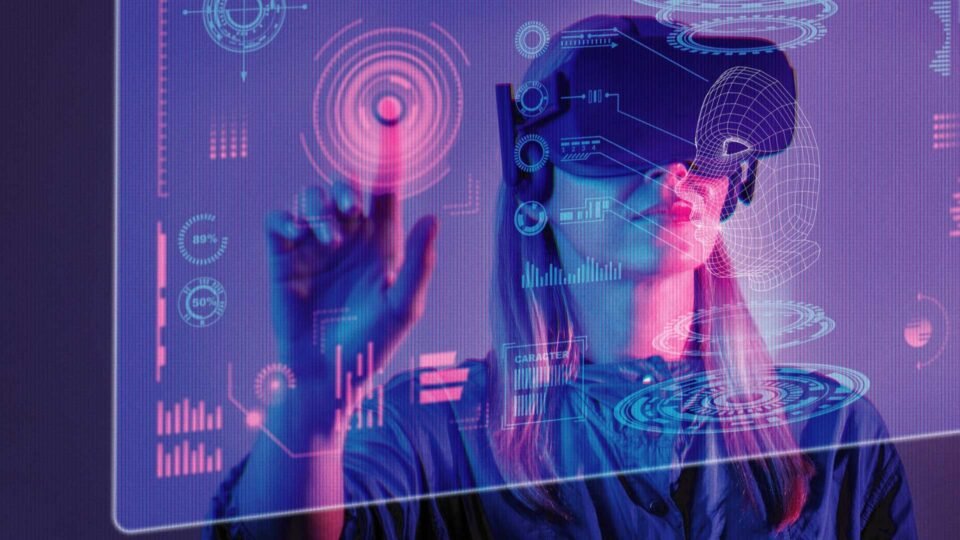Explore how augmented intelligence enhances human potential, driving innovation and productivity in the modern workforce.
Table of contentsIntroduction
A Symbiotic Relationship with Organizations and Augmented Intelligence
Real-World Business Scope of Augmented Intelligence
Bottom Line
Introduction
The business landscape has been transformed over the past few years with the help of numerous technologies, and one such marvel is augmented intelligence, which has emerged as a potent ally for human users to enhance our business capabilities. This technology represents a synergy between human expertise and machine learning (ML), redefining how human intelligence approaches problem-solving, decision-making, and innovation. However, amidst all the insights, it is essential to understand that augmented intelligence is not a solution that can be operated independently. Still, it requires human oversight and intervention to help carefully orchestrate ethical considerations to ensure their alignment with human values and ideals.
In today’s AI Tech Park article, we will explore the boundless potential of augmented intelligence in reshaping the future of business.
A Symbiotic Relationship with Organizations and Augmented Intelligence
Augmented intelligence focuses on enhancing human capabilities by combining creativity and design-making skills with artificial intelligence’s (AI) ability to process large sets of data in a few seconds. For instance, in the healthcare sector, AI filters through millions of medical records to assist doctors in diagnosing and treating patients more effectively, therefore not replacing doctors’ expertise but augmenting it. Further, AI automates repetitive tasks, allowing human users to tackle more complex and creative work, especially with chatbots as they handle routine inquiries in customer service, allowing human agents to resolve more minute issues.
Augment intelligence uses personalized experience at a scale that informs users about current market trends, enhancing customer satisfaction, further helping to stimulate human creativity, and exploring new patterns and ideas. Numerous tools, such as OpenAI’s GPT-4 and Google Gemini, can create high-quality written content, which will assist writers and marketers in inefficiently generating social media posts and creative writing pieces. In terms of designing, genAI tools such as DALL-E and MidJourney work as guides that enable designers to generate unique images and artwork based on a few textual descriptions.
Real-World Business Scope of Augmented Intelligence
Till now, we have understood that augmented intelligence is the next thing that companies should implement in their businesses to kickstart a creative yet partially autonomous journey. Therefore, we bring you some key areas where augmented intelligence can have a significant impact:
1. Retail and Manufacturer Industry
The retail industry has witnessed a change in customer tastes post-COVID-19 pandemic, disrupting their logistical and supply chain structures. Therefore, retailers utilize augmented intelligence to analyze customer preference, purchase history, and browsing human behavior to deliver personalized product recommendations that not only enhance their shopping experience but also drive more sales and foster customer loyalty. On the other hand, the manufacturing industry has faced challenges such as supply chain disruptions, a massive drop in worker supply, and raw material shortages due to the pandemic and recession. Therefore, to curb these issues, B2B manufacturers rely on augmented intelligence that aids in data collection from sensors and IoT devices, which eventually helps them understand the production capacities of the production lines, the shipping times, warehousing space availability, and scheduling time for the workers.
2. Healthcare Industry
With the rise in patient personalization and medical and drug experiments, healthcare providers are leveraging augmented intelligence to analyze the largest amount of medical data and predict and diagnose diseases more accurately and efficiently. With the help of augmented analytics, hospitals and medical institutes can optimize their business operations by researching key metrics such as the duration of stay and the bed occupancy rate.
Bottom Line
The human-AI collaboration offers potential by leveraging the strengths of both human creativity and augmented intelligence to achieve shared objectives of better business operations. However, the implementation of this technology doesn’t imply the replacement of human intelligence, but this collaborative initiative will enhance decision-making, boost efficiency, and transform business interaction to enhance organization scalability and personalization.
Explore AITechPark for top AI, IoT, Cybersecurity advancements, And amplify your reach through guest posts and link collaboration.

